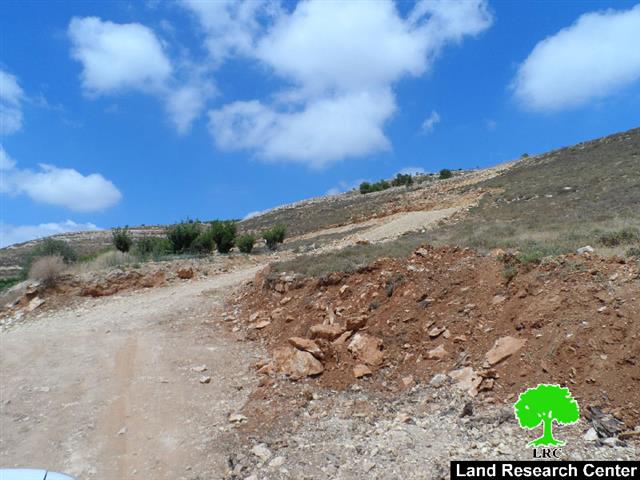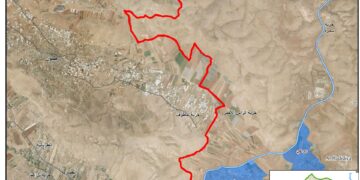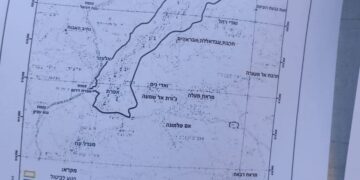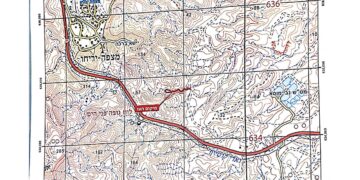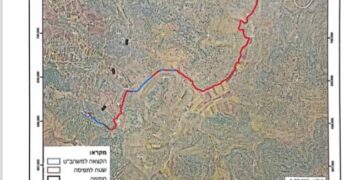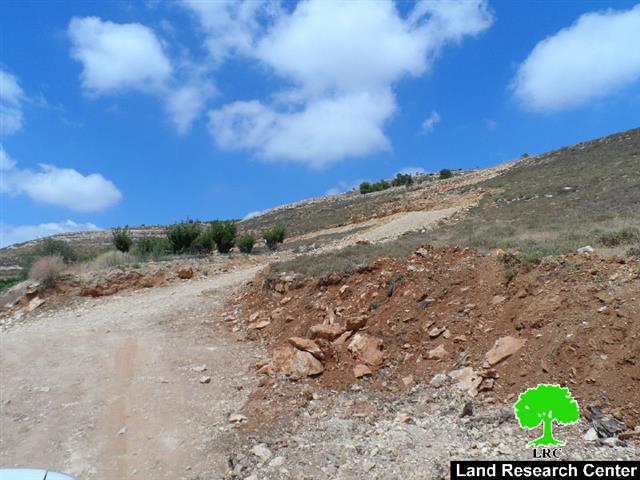Violation: demolition orders on roads
Location: 02/06/2015
Date: Halhul-Hebron
Perpetrators: Israel Civil Administration and army
Victims: famers from Halhul
Details:
The Israeli occupation authorities on June 02, 2015 served two stop-work and demolition orders on two agricultural roads, northeast Halhul town in Hebron.
The Israel Civil Administration raided the northeastern part of Halhul, where the Union of Agricultural Work Committee UWAC is implementing a reclamation project on lands and opening agricultural roads to serve the area. Noteworthy, the orders were left by the threatened roads.
The order compelled a halt of construction and the restoration of the structure’s previous status within a seven day deadline under the pretext of unlicensed construction.
Photos 1+2: the demolition orders served on the roads
The Israeli occupation authorities on April 21, 2015 served stop-work orders on the aforementioned roads under the pretext of unlicensed construction. May 15, 2015 was assigned as the hearing session for the Inspection Sub-Committee in the Israeli court of Beit El to consider the status of the notified structures.
Photos 3+4: the stop-work orders served on the roads
Engineer Nadim Rawashda from UWAC prepared the legal file to object the order through the legal association of Saint Yves. Despite all that, the Israeli occupation authorities came again and served the demolition order on the roads.
Noteworthy, the reclamation project started on February 15, 2015 and is still ongoing. The served orders targeted the following roads:
- A 3km agricultural road: it has been opened through the project to serve 3000 dunums from the areas of al-Jumjuma, Wad al-Shunar, and Tun Brin.
- A 1.5km agricultural road: it has also been opened through the project to serve 1500 dunums from the areas of Ras al-Qadi and Wad al-Shunar.
Photos 5-9: the targeted agricultural roads
About Halhul:
It is 7km north Hebron city and is around 39,000 dunums in area; 9000 dunums of which are built up area where the rest is planted with grapes, peach and almond trees. The town is 1050m above sea level and is considered the highest point in the West Ban. It has a total population of 22,413 people (Palestinian Central Bureau of Statistics 2007)
Prepared by
The Land Research Center
LRC

